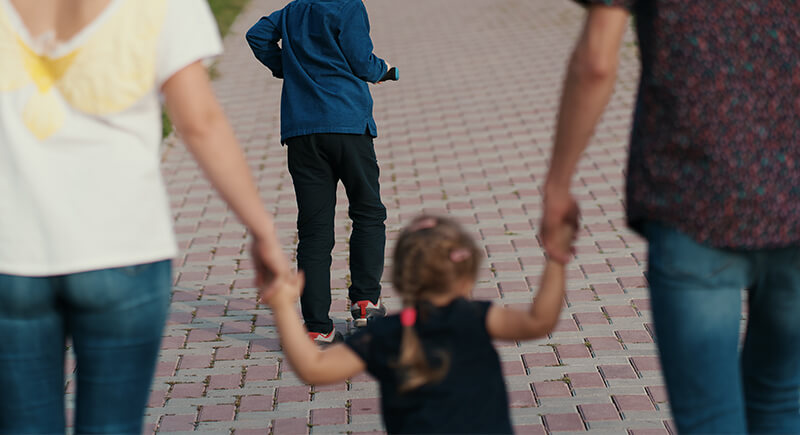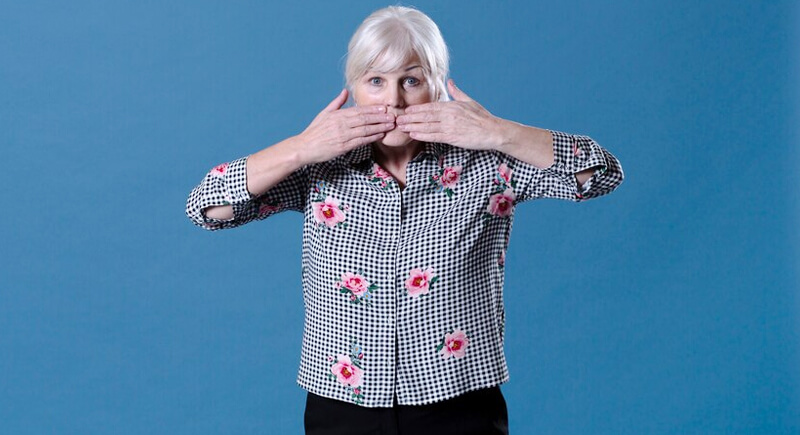Sometimes, family ties snap instead of stretch. This article lists reasons that leave grown kids packing their boxes. It’s not always drama or disaster, but distance for peace. Are you curious about what pushes that emotional eject button? These insights might surprise you or hit you closer to home than expected.
Boundaries Are Ignored Repeatedly

Boundaries are respect in action. When adult children say, “Please don’t drop by unannounced” or “Stop bringing that up,” and it keeps happening anyway, frustration builds fast. Ignoring limits is the same as saying their comfort doesn’t matter. If every “no” gets pushed, eventually, there’s nothing left but silence and space.
Constant Comparisons to Others

Nothing sours a relationship faster than being stacked up against someone else. Constant comparisons like “Your brother has a real job” or “Why can’t you be more like her?” chip away at self-worth over time. The brain literally lights up under praise but shuts down under shame. So, the more comparisons there are, the more alienation there is.
Treated Like a Child Well Into Adulthood

There’s a difference between love and hovering. When adult children are still told how to dress, where to live, or what job to take, frustration builds quickly. The prefrontal cortex, which is the part of the brain responsible for decision-making, is fully developed by age 25. Treating grown adults like they’re still in high school usually backfires.
Love is Only Shown When Conditions Are Met

When love feels like a rewards program—earned through obedience, achievements, or silence, it stops feeling like love. That unspoken “Perform or else” vibe pushes adult children to protect their peace. Conditional affection is often confused with high standards but usually breeds resentment instead of closeness.
Guilt Becomes the Default Tool

Guilt trips might win a few short-term favors but lose long-term relationships. When every conversation is laced with “After all I’ve done…” or “You never call anymore,” it starts to feel like emotional blackmail. Guilt activates the brain’s pain centers—literally. Instead of pulling adult children closer, it makes them want to escape.
Every Disagreement Turns Into a Lecture

What could’ve been a quick chat turns into a drawn-out speech with no intermission. Adult kids start feeling like they’re back in high school, stuck in a parent-teacher conference with no exit. When every disagreement becomes a lecture, silence starts looking like the better option.
Held Responsible for Adult Problems Too Early

Growing up in chaos often means becoming a grown-up way too soon. Whether it was keeping the peace during arguments, worrying about bills, or managing a parent’s emotions, adult children who had to “hold it all together” often reached their limit. The expectation to carry that emotional weight into adulthood becomes unbearable.
Sibling Favoritism Is Obvious

Sometimes, it’s loud and clear—like unequal gifts or praise. Other times, it’s more subtle, like who gets defended in an argument, but favoritism doesn’t stay hidden for long. It stings and shapes relationships for decades. Adult children who feel like they are always the runner-up often decide they’d rather sit out entirely.
Turned Into the Emotional Lifeline

Those constantly expected to cheer up, calm down, or fix everything start to realize they never had space to feel anything themselves. When emotional support is always one-sided, it triggers compassion fatigue—similar to what therapists experience. Except in this case, there’s no paycheck and no clock-out time. Just burnout and silence.
No Protection During Childhood Trauma

Trauma leaves a mark, but silence around it leaves a bigger one. Being told it “wasn’t that bad” or “just let it go” only piles on the damage. Adult children often walk away not because of what happened but because no one helped. Sometimes, distance becomes the only way to feel safe.
Money Used as a Leash

Money with strings attached doesn’t feel like support but control with a receipt. Adult children start to feel more like employees than family. Generosity should come with no conditions. If every dollar comes with a reminder, no wonder the relationship feels like a transaction.
Public Moments Turned Into Humiliation

Sharing awkward childhood stories, mocking weight, or criticizing choices in front of others might seem harmless—but it sticks. People remember embarrassing moments with more intensity than happy ones, thanks to how the brain processes emotional events. Respect in public often matters more than praise in private.
Every Decision Met With Criticism

Criticizing everything: jobs, partners, parenting choices, and how they load the dishwasher sends one loud message: nothing is ever good enough. Eventually, adult children stop sharing to protect their peace. It takes five good interactions to balance out just one harsh critique. That math adds up quickly, and it’s not in favor of staying close.
Success Met With Jealousy

Success should feel like a shared win, but other parents make it feel like a rivalry. They meet every milestone—a new job, new house, big raise—with passive digs or calm silence. So, instead of pride, there’s tension. Parental jealousy is rarely discussed, but it happens more than most admit.
Apologies Never Spoken Out Loud

Some people treat apologies like they’re made of gold: rare, precious, and never handed out. But adult children notice when the hurt gets swept under the rug and never addressed. Without it, resentment sticks around like an unpaid bill. It’s not always the mistake that ends the relationship but the silence that follows.